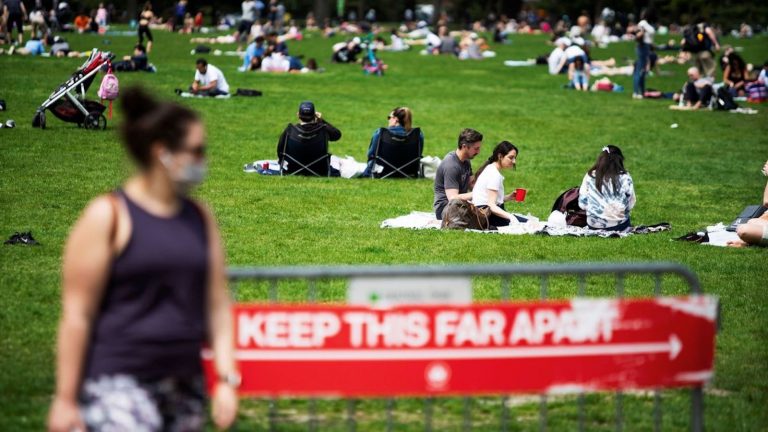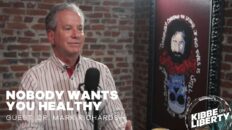Apologies up front, merciful reader. Were this author clever enough, or motivated accordingly, the following disquisition would match Third Eye Blind’s “Losing a Whole Year” in rhythm and melody. Unfortunately, you’ll remain deprived of such a felicitous matchup and have to accept my cut-rate, unmelodious doggerel. If you are unsatisfied, see the box-office hireling for a refund on the way out. The customer always being right remains a highmark American principle.
The unofficial first-year anniversary of the novel coronavirus, or COVID-19, or WuFlu, or the bat rasps, or whatever the preferred nomenclature is for the respiratory buggy bulldozer, is upon us. At least, our widespread reaction to the air-borne infectious pathogen is imminent. We don’t know when exactly SARS-CoV-2 entered the U.S., or how long it’s been hopping from lung to lung on our shores. China’s caginess over revealing the real province of the virus, along with the World Health Organization’s go-along complicity in the obfuscation, leave the real time-table unclear.
But the first anti-COVID policy measure took place nearly twelve months ago when former President Trump restricted most U.S.-bound travel from China. He was roundly reproofed at the time for being a Sinophobic reactionary, including by then-candidate Joe Biden. Months later, the ban was vindicated, despite being shot through with loopholes (whither America-first isolationism!). Even progressive policy wonks conceded it was better than nothing.
The all-too-familiar laundry list of prevention followed: mask mandates, business lockdowns, school closures, stay-at-home orders, crashcourse Zoom tutorials, sani-wiping groceries, toilet-paper shortages, Amazon stock jumps, “essential” worker carve outs, “14 days to flatten the curve,” clapping for frontline orderlies, nurse TikToks, the USNS Comfort docking at Pier 90, COVID field hospitals.
The white-collar, laptop-bound middle class had it easy. Speaking for my privileged kind, our inner couch potato let out a sugary pop-carbonated belch, pumped our artificial-cheese-dust covered fists, and cried HALLELUJAH! for our accumulating adipose as we waited out the worst of it.
Others weren’t so lucky. Too many deaths resulted, including of such cultural icons as country hitmaker Charlie Pride, murderer and avant-garde producer Phil Spector, Temptations vocal lead Bruce Williamson, Broadway star Nick Cordero, Sith prince Dave Prowse, insouciant newspaperman Larry King, and pizza maestro and tax-plan tag-lineist Herman Cain. The body count relentlessly ticks upward.
The hanging up of the nationwide “sorry we’re closed” sign brought its own abject consequences to bear: a disturbing upswing in deaths of despair, retirement homes turning into Killing Fields, permanent small-business shutterings, children maladjusting to remote classrooms and forgetting how to read, not being able to visit loved ones in the hospital, funerals pushed off or canceled, the social anomie produced by digitization and isolation.
So what’s it like losing a whole year? Temporally speaking, time isn’t lost. (Insert a clever Proust quip here.) “Truth is subjectivity,” said the philosopher. That wasn’t a nihilistic appeal to po-mo relativism, but a recognition that reality is felt and dealt with by individuals who adjust to its contours. And time, as the wise wizard tells us, life is simply a choice of what we do “with the time that is given to us.”
So we must choose to remember; remember what life was like before the pandemic.
The packed malls, bustling restaurants, noisy sud-soaked bars, open theaters, occupied pews, exuberant concert crowds, real fans at sporting events, mandibles unswathed in spittle-dampened cloth, not suspecting everyone at the grocery store of harboring a fatal disease, the lack of anxiety, the innocence.
These “normal” conditions were so normal that they were a societal blind spot. We didn’t notice them until they were prohibited. Now there is a creeping acceptance of this new anti-social default, with double… NO!… triple masking and the Rolling Stones never playing a farewell concert before a full stadium ever again. Dr. Fauci, the epidemiological authority whose lottery numbers are as reliable as chewing a pair of dice and spitting it out, cautions that pandemic precautions may last into 2022. He’s even warned, “If you want to get to pre-coronavirus, you know, that might not ever happen.”
Some gloomy types even welcome the new dispensation of hunkered-down living. Peter Leithart applauds the hitch the past year brought to modernity’s ineluctable course. He urges us to “pause before we rush back into the rush” and savor the “taste of non-modern time,” like laicized Trappist monks trying to become cloistered again. The great quietism of 2020 should have slowed our busied lives, providing more time for thoughtful contemplation. It should have flipped our hierarchy of values, deemphasizing the rat race in favor of the simple pleasure of being. Reverting to the flashing days of ex-ante COVID may be another flip, first obscuring, then erasing, the pacific memories of not having a dinner reservation to make or a happy hour to show your face at.
Roger Scruton once commented on the reaction to the fall of communism behind the Iron Curtain:
This isn’t an argument for repressive communism, of course. People can find joy in oppression. They can discover the real value of freedom in its lack thereof. But the point is to restore freedom.
The end of Covidtide may or may not be on the horizon. If some power-philia governors had their way, we may never see an end to the shutdowns, masks, and the entire slate of COVID edicts. They should be told to suck an egg. Some should be locked away in a grimy calaboose for their deadly maladministration. Or better yet, a nursing home.
We must hold tightly to the hope that pandemic life is temporary. Authority merchants would sooner have us forget. But, as Balzac said, hope is a memory that desires. Remember what the coronavirus took from you, and what some politicians would prefer you never get back.
Until the scourge of #covarantine is over, may I suggest pouring yourself a potent potable and putting on a good record? I hear ‘90s alternative is making a comeback.














Add comment